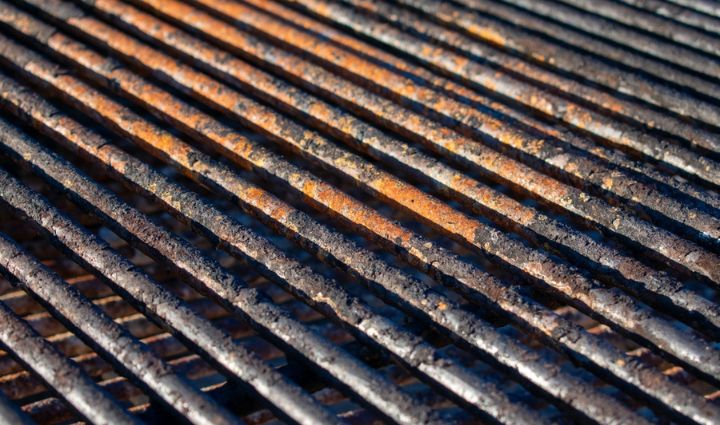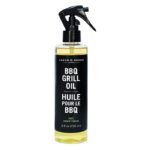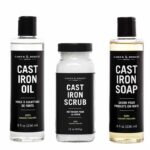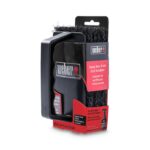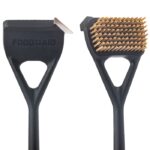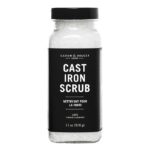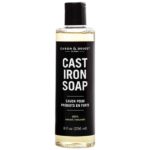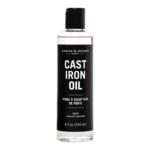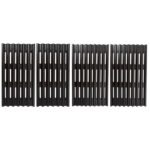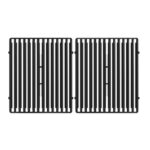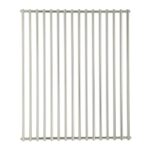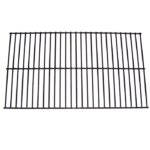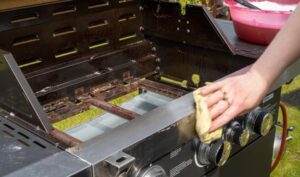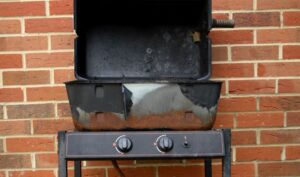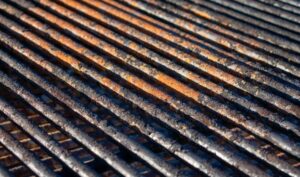The Complete Guide to Troubleshooting Gas Grill Issues is your source for step-by-step instructions on how to diagnose and fix the most common gas grill issues. Whether your grill isn’t heating properly, won’t stay lit, or simply has rusty parts, we’ve got the answers you need to get your gas barbecue firing on all cylinders.
Rust on your grill rack or cooking grates shouldn’t be ignored. While cooking on a rusty grill grate won’t harm you, it can affect the taste of the food and speed up the deterioration of the grates.
As soon as you discover rust on your grill grates, you should immediately take steps to clean it. Early stages of rust can be removed and repaired, ensuring your grill’s longevity, but if you let it go too long, the corrosion can penetrate too deeply and your only option will be to replace the rusty grill grates.
In this section of the Complete Guide to Troubleshooting Gas Grill Issues, we’ll explore the problem of the rusty grill grates, including:
- Removing rust from grill grates
- How to clean stainless steel cooking grates
- How to clean cast iron grill grates
- How to clean porcelain steel cooking grates
- Preventative care
Let’s get cooking.
Removing Rust From Grill Grates
Removing rust from your grill grates is actually fairly easy, so long as it hasn’t penetrated beneath the surface. You will just need a few tools:
- Aluminum foil
- A non-metal bristle brush or scrubber
- Cleaning agent(s)
Shop for grill cleaning supplies:
If the rust has gotten deep into the grates, you may need to consider replacing them.
How To Clean Stainless Steel Cooking Grates
Stainless steel grates are protected against but are not impervious to rust. If you spot some rust starting to form on your stainless steel cooking grates, follow these steps to clean them:
- Spread a piece of heavy-duty aluminum foil over the grates, then heat the grill up to 500 degrees for 15 minutes. The foil concentrates the heat and helps burn off any stuck-on food particles.
- Cool the grill and use a non-metal bristle brush to remove any leftover food particles.
- If any tough food and grease build-up remains, remove the grates and sprinkle them with baking soda. Spray white vinegar onto the baking soda. After the mixture foams, gently scrub it with a grill brush.
- For super stuck-on food, you can also try soaking the grill grates in hot water with dish soap for 1-2 hours or overnight, then scrub with a heavy-duty scrub pad.
- After cleaning, rinse the grates with water to remove any cleaning agents and allow them to dry completely before returning them to your grill.
How To Clean Cast Iron Grill Grates
Cast iron grates should be cleaned and seasoned after every use to keep them non-stick and resistant to rust. Follow these steps to clean cast iron cooking grates:
- While the grates are still warm, brush them with a bristle brush or a ball of tin foil held between tongs.
- Scrub away any light rust or stubborn stuck-on bits using steel wool. If these spots still won’t lift, you can use a solution of water and mild dish soap. (It’s okay to use dish soap on cast iron, we promise.) Heat your grates after you wash them to ensure they are dry—this is the best way to prevent any remaining moisture from creating more rust.
- While they’re still warm, season your cast iron cooking grates by rubbing them with a thin layer of oil. Leave the grill on for a few minutes to allow the oil to penetrate, then turn it off. This will bake the oil into the cast iron and create a non-stick coating for your next cookout.
Learn more about how to season cast iron grill parts:
Shop for cast iron cleaning supplies:
How To Clean Porcelain Steel Grill Grates
Porcelain-enameled still grill grates are easy to clean, but they’re a bit more delicate than stainless steel or cast iron, and you should be gentle with them. The porcelain surface can be damaged or chipped by a vigorous cleaning, which can lead to rust that will significantly shorten the lifespan of your grill grate.
Follow these steps to remove rust from porcelain grill grates:
- Heat up the grill to burn off any excess food, then turn off the grill and let it cool.
- Using a soft bristle brush, brush diagonally across the grates in smooth, fluid motions to remove food and debris. Diagonal motions make it easier to remove food and grease, but be careful not to scrub too hard or you risk damaging the surface of the grate.
- For deep cleaning, mix a solution of 6 parts baking soda and 2 parts warm water and apply the paste to the grates. Let the paste sit for 20 minutes, then clean with a soft bristle brush.
GRILL SPOT TIP: Porcelain coated steel grill grates don’t need to be seasoned the way that cast iron grates do, but a light coating of vegetable oil on the grate or the food itself will help prevent sticking.
Preventative Care
While you may not enjoy cleaning your cooking grates, taking good care of them helps reduce the chance of them developing rust and other types of damage. Keep them rust-free by:
- Following the preventative maintenance routine in your owner’s guide.
- Regularly inspecting your grill for discoloration, surface rust, and other types of damage.
- Routinely cleaning your grill.
- Covering your grill with a good-fitting grill cover.
Read our detailed guide for step-by-step instructions on how to clean your grill’s cooking grates and when it’s time to replace them.
Conclusion
A rusty grill grate isn’t usually the end of the world, but it can impact the cooking process and the appearance of your grill. Thankfully, you can get your grill grates cleaned and cooking in no time if you:
- Monitor your grill grates for signs of rust and clean them when they do appear
- Clean (and season if needed) your grill grates after each use
- Prevent rust with proper maintenance
- Keep your grill covered to protect it from the elements
Shop for replacement grill grates:
Still struggling with your grill? Learn more about different grill problems, what causes them, and how to solve them in our Complete Guide to Troubleshooting Gas Grill Issues.

